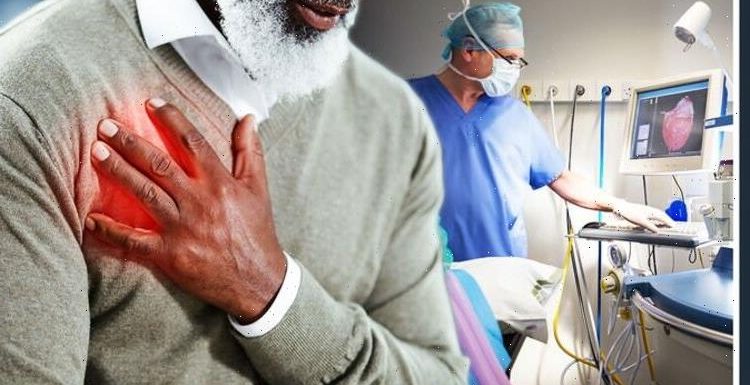

We use your sign-up to provide content in ways you’ve consented to and to improve our understanding of you. This may include adverts from us and 3rd parties based on our understanding. You can unsubscribe at any time. More info
The artificial intelligence tool can detect changes in the heart from MRI images with 40 percent more precision than a doctor manually looking at the scans, a study found.
Researchers estimate that it could save 3,000 days-worth of clinicians’ time if it was adopted for all MRI scans across the UK.
It is initially being rolled out at three London hospitals – University College London (UCL) Hospital, St Bartholomew’s Hospital, and the Royal Free Hospital. The rollout is expected to be extended to 40 locations across the UK and globally later this year.
Dr Rhodri Davies, an associate clinical professor at UCL who led the research, said: “Our new AI reads complex heart scans in record speed, analysing the structure and function of a patient’s heart with more precision than ever before.
“The beauty of the technology is that it replaces the need for a doctor to spend countless hours analysing the scans by hand.
“After this initial roll-out on the NHS, we’ll collect the data, and further train and refine the AI so it can be accessible to more heart patients in the UK and across the world.”
Around 120,000 heart MRI scans are performed every year in the UK.
The AI is designed to diagnose new conditions when a patient is first assessed for heart disease. It can also help doctors check whether patients are responding well to treatment.
The team trained the AI to measure the size of the left ventricle (the main pumping chamber of the heart), the thickness of the heart muscle and how well the left ventricle was able to pump blood around the body.
They did this using heart MRI scans from 1,923 people – including patients with seven different heart conditions at 13 different hospitals and using 10 different models of MRI scanner.
The AI was then validated on a further 109 patients who were scanned twice. The AI technology was found to analyse the scans more precisely than three doctors.
Dr Sonya Babu-Narayan, associate medical director at the British Heart Foundation, which funded the research, said: “This is a huge advance for doctors and patients, which is revolutionising the way we can analyse a person’s heart MRI images to determine if they have heart disease at greater speed.
“The pandemic has resulted in a backlog of hundreds of thousands of people waiting for vital heart scans, treatment and care. Despite the delay in cardiac care, whilst people remain on waiting lists, they risk avoidable disability and death.
What is happening where you live? Find out by adding your postcode or visit InYourArea
“That’s why it’s heartening to see innovations like this, which together could help fast-track heart diagnoses and ease workload so that in future we can give more NHS heart patients the best possible care much sooner.”
The research was published in the Journal of Cardiovascular Magnetic Resonance.
Source: Read Full Article